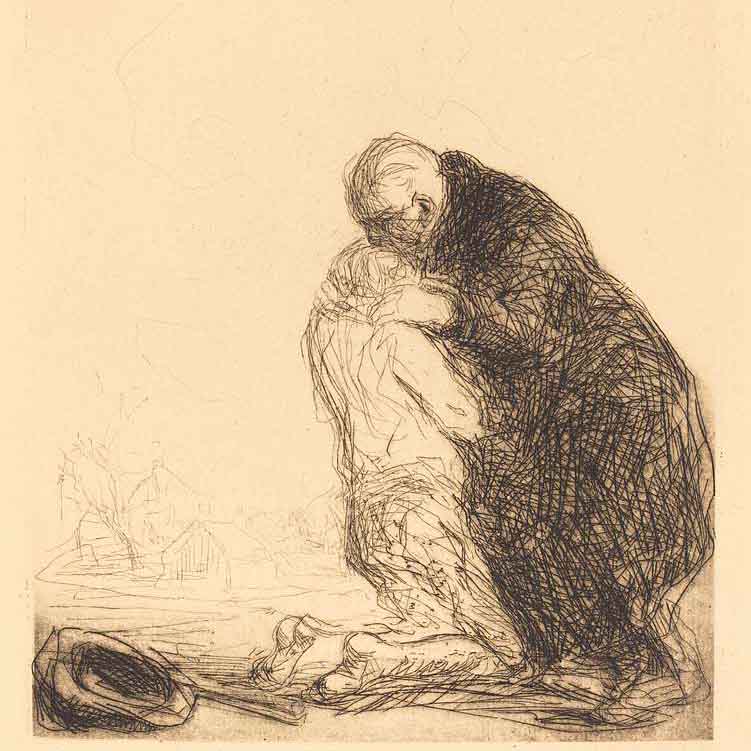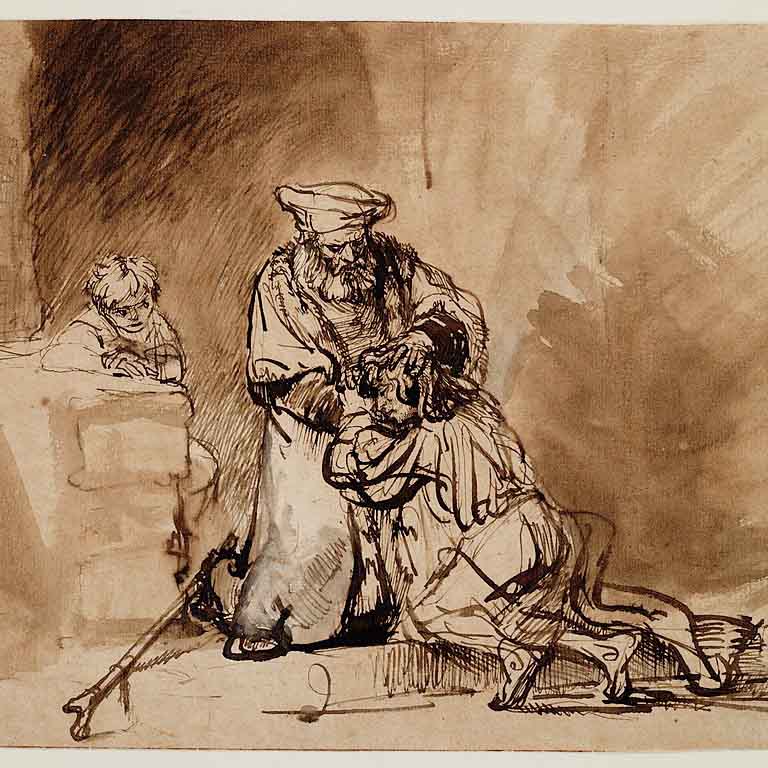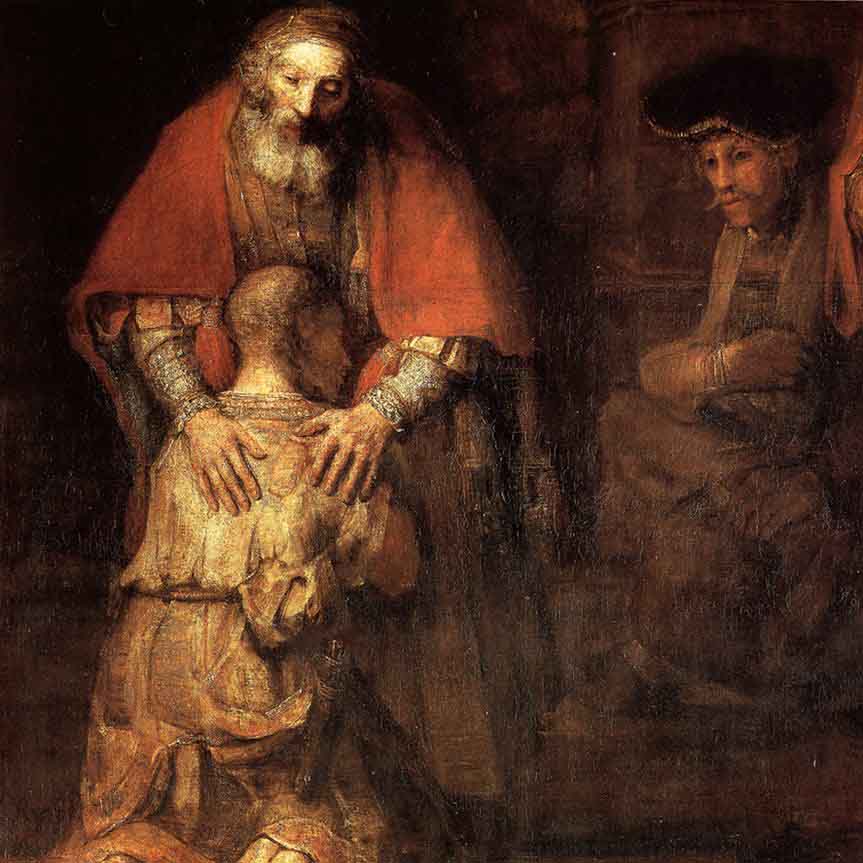By Sophie Wun
Dear friends, we’re excited to share our new reconciliation series, Homecoming, with you. Inspired by Henri Nouwen’s book, the Prodigal Son, we’ve prepared reflections, invitations, and testimonies surrounding that same Gospel passage. We hope that this will help in your own homecoming journey. Regardless of whether you’re close to God or have been far away, we’re all in constant need of His mercy and grace.
“Then Jesus said, “There was a man who had two sons. The younger of them said to his father, ‘Father, give me the share of the property that will belong to me.’ So he divided his property between them. A few days later the younger son gathered all he had and travelled to a distant country, and there he squandered his property in dissolute living..” – Luke 15:11-13
The human reality
“See what great love the Father has lavished on us, that we should be called children of God!”. (1 John 3:1) His children, this is the identity that God has given to us. However, even when we do claim our identity as children of God, our struggle with sin continues to plague our lives. Indeed, “[if] we claim to be without sin, we deceive ourselves and the truth is not in us.” (1 John 1:8). Why is this so? Looking at the younger son in the parable of the prodigal son in Luke 15:11-32, who left home in search for more, perhaps we can find some answers.
Departure: Our Common Ground
In the first few lines of the parable, we’re confronted with how ungrateful and entitled the younger son is towards his father. It is clear that the younger son is well provided for, nor distressed by difficult circumstances. Restless and driven by his ingratitude, he looks elsewhere to satisfy his desire for more. He chooses to depart from his father’s house, and in turn, fractures their relationship. Reflecting deeper on our own lives, we might find more parallels to the younger son than we’d care to admit. Times where we’ve taken God and His love for granted, choosing to chase after the world rather than remain with Him. This in its essence is sin.
What is sin?
According to Catechism of the Catholic Church (CCC) 1849, sin is a failure to love God and neighbour wholeheartedly because we are more obsessed with loving something other than them. While this seems tolerable at first, there is something more sinister lurking underneath. When we leave the Father’s house to search for some other good we think can truly satisfy us, we commit the double folly of:
- Failing to recognise God’s love as the ultimate thing that can satisfy us,
- Making ourselves the centre of our life, trying to be God in chasing what we think is best for ourselves
In short, we push God away and pretend we are God, thinking we know better than Him to ‘[determine] good and evil’ (CCC 1850) for ourselves instead of perceiving His present goodness.
Effects of sin on our identity as His children
When we leave the Father’s house, we gradually lose our identity as children of the Father. In Romans 7:15, St Paul says, “I do not understand what I do. For what I want to do I do not do, but what I hate I do.” Does this not speak deeply into the human experience of knowing what is good to do, yet not having the strength or will to carry it out? When we leave the Father’s house, we no longer act out of the security and knowledge that we are cared for by Him, and we begin living a life of self-reliance. This is what happens to the younger son, when he starts to find work in order to feed himself after losing all his money . His prodigal foray leads him to lose his identity as son.
Outside his father’s house, his identity was in his wealth, but after losing all of it, he lost all sense of his identity. The younger son was considered less than human and only shared a common identity with the pigs. Even when he decides to return to the father, he still has this self-reliant mindset that imposes conditions for the father’s forgiveness of him. He attempts to persuade his father to take him back by acknowledging that he is ‘no longer worthy to be called [his] son’, and he can just be ‘like one of [his] hired servants.’ (Luke 15:19). He reduces himself to a hired servant because that was the only way he thought he could accept the father’s help – when he had proven himself worthy of it.
Return to the Father
The son’s decision to return home is borne out of the depths of his helplessness, when he finally comes face to face with his inability to help himself anymore. He acknowledges that his father can help him more than he can help himself, albeit in a conditional manner. “But while he was still a long way off, his father saw him and was filled with compassion for him; he ran to his son, threw his arms around him and kissed him.” (Luke 15:20). His father reminds him first and foremost that he is his son.
Like the younger son, it can seem easier to figure out things on our own, even when things go south. We throw ourselves into greater striving, and feel obliged to solve our problems by ourselves. At this point, our desperation must not lead us into despair, but to a desire for return to God the Father. He is the One who reminds us of our core identity as a child even when we have forgotten it. God makes the first move, running out and pouring out His unconditional love, before our self-reliant mentalities can have us do anything.
Full reconciliation with the Father
Thus, we are invited to a genuine return to the Father. When the younger son first returned to the father, he returned out of self-preservation. When we return to God the Father, His unconditional love invites us to move away from any self-serving interests to a full acceptance of His forgiveness. This first entails recognising the Father’s love for us as His children, and secondly accepting His forgiveness so that we may return to true sonship with Him. Only then can we move out of our self-obsessed hearts to allow ourselves to be loved by the Father freely, because He loves us and we love Him in response.




